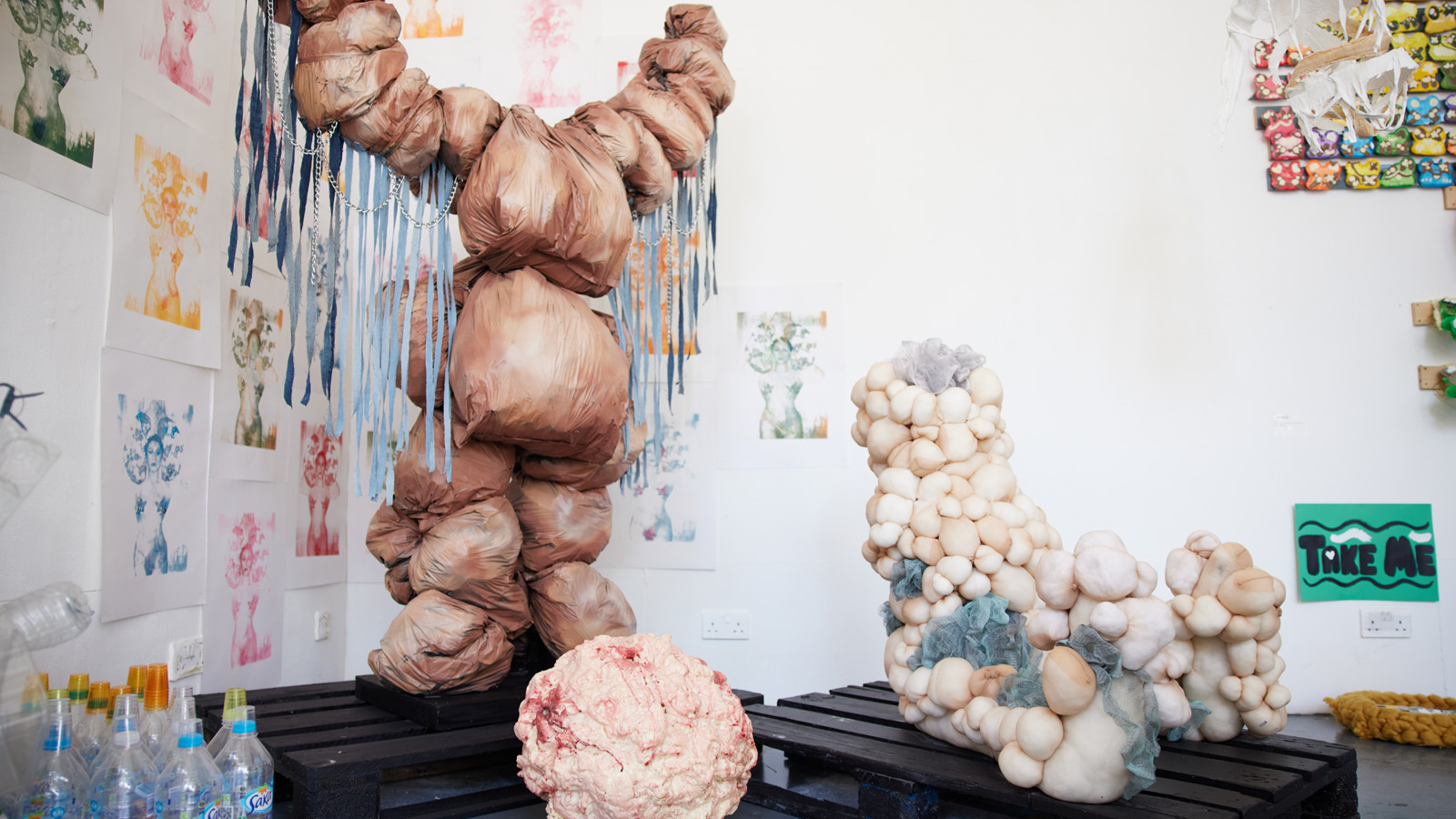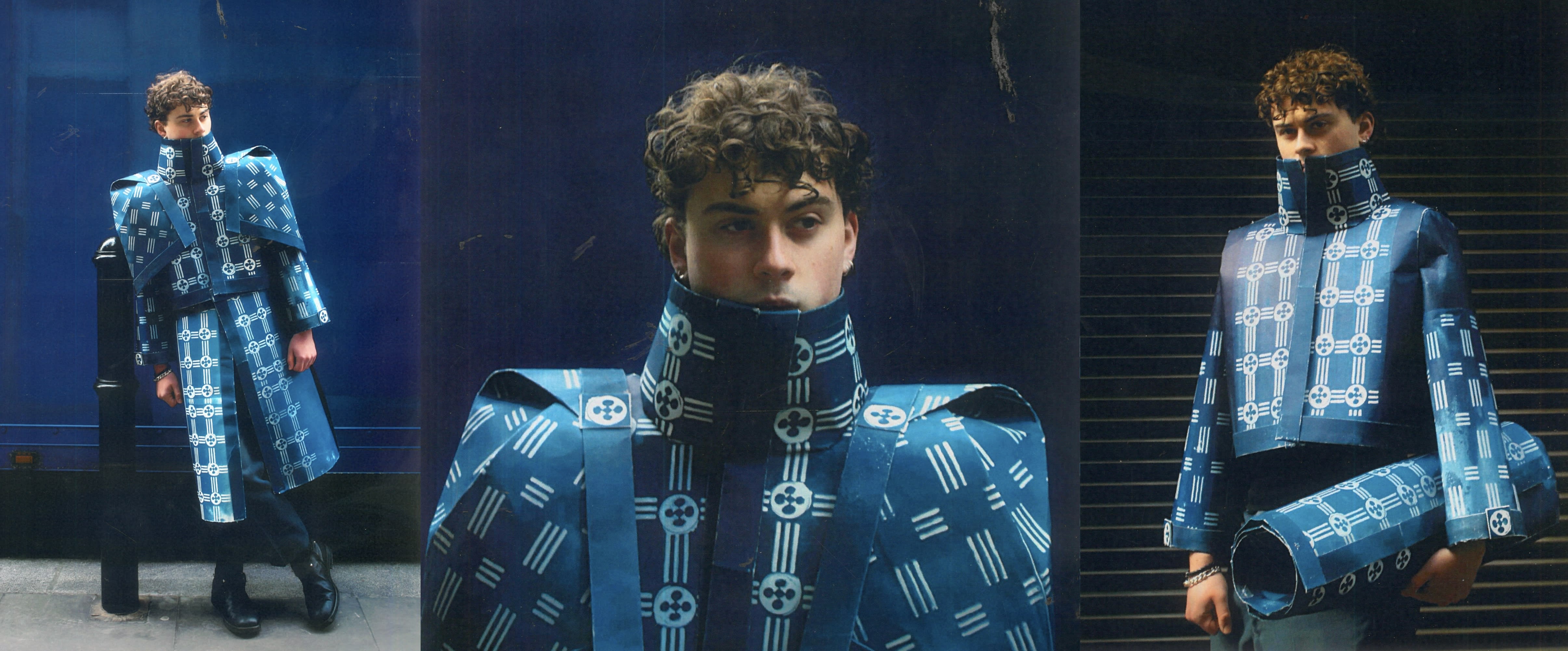Course overview
The Foundation Diploma is designed to prepare students for specialist undergraduate degrees in art and design subjects. It’s a year of exciting projects, new faces and experiences that will inform your future study, career and creative life.
Foundation is widely considered the best preparation for progression to an undergraduate degree in the creative arts in the UK. On this dynamic course, you’ll try different disciplines from across art and design while being supported to fulfil your creative potential and ambitions.
What to expect
- Expert staff: You’ll be taught by highly experienced teams based from the UAL School of Pre-Degree Studies. Skilled technicians will also support you in all of our studios.
- Outstanding facilities: Based at UAL School of Pre-Degree Studies, you'll have access to wood, metal, plastic, plaster, textile, stitch, printmaking workshops, photography, 3D printing and laser cutting facilities and a loan store.
- Varied teaching methods: You’ll take part in studio teaching sessions, technical workshops, collaborative projects, group teaching sessions and additional study support sessions.
- Portfolio development: Build a strong portfolio for application onto undergraduate degrees in art and design subjects.
- Progression support: Get advice to help you progress onto further study, including College visits and talks from undergraduate course teams from across UAL.
- UAL library access: You’ll have access to all UAL libraries and learning zones located in our Colleges across London.
If you successfully complete the Foundation Diploma in Art and Design, you’ll receive at least 1 offer to a UAL undergraduate course, to start the following September.
We cannot guarantee that you’ll receive an offer for each course that you apply to. In some instances, you may receive an offer for an alternative course or mode of study that you didn’t apply to. The offer or offers you receive will depend on your portfolio and will be made after careful review by College course teams and Admissions Tutors.
Find out more about offers in our 'Progress to a UAL undergraduate degree' section further down this page.
Choosing a mode of study
When you apply to the Foundation Diploma in Art and Design, we’ll ask you to choose from 2 modes of study: Diagnostic or Specialist.
Diagnostic mode
With over 100 undergraduate courses available at UAL alone, choosing the right one for you can be challenging. The diagnostic mode helps you understand where your skills and interests fit within art and design. It is the best option if you want to explore a wide range of art and design disciplines before committing to a specialist course of study.
In Unit 1 of the diagnostic course, you will have the chance to try out 12 different specialist pathways. The benefit of this diagnostic process is the opportunity to encounter a wide range of approaches, materials and processes led by our staff team of industry experts
As you move into Unit 2 you will have discovered which specialist pathway is the best fit for you, enabling you to develop a unique portfolio of work for application to further study.
Specialist mode
The specialist mode is best for you if you’re already confident about your future direction. This mode allows you to apply directly to one of the 4 curriculum areas: 3D Design, Fashion and Textiles, Fine Art and Communication Design.
If you decide to study in specialist mode, you’ll tell us which curriculum area you’re interested in as part of your application. During the first 8 weeks of study, you’ll take part in workshops across all the pathways in that curriculum area. Then you’ll be guided, through tutorials and assessment, to the pathway that best suits your interests and skills.
Curriculum areas and pathways
The course is divided into 4 curriculum areas, each with their own specialist pathways:
- 3D Design
- Fashion and Textiles
- Fine Art
- Communication Design.
Curriculum Area 1: 3D Design
We encourage thinking, making, and experimentation across a broad range of subjects including architecture, jewellery, product, performance and film design. You'll experiment with functional, craft based and conceptual design methods. Our explorative approach allows you to investigate processes and materials and develop your making skills.
Curriculum Area 2: Fashion and textiles
We encourage a playful, experimental and fearless approach to exploring form, materials, techniques and processes across a broad range of fashion and textile subjects. You'll complete projects that investigate different fashion specialisms. You'll work with textiles within both fashion and interior contexts and large-scale spatial installations.
Curriculum Area 3: Fine Art
We'll support you to develop your own individual visual language or voice. You'll work on a series of projects to encourage you to learn by doing across different types of media. You'll also develop greater awareness of the link between research, theory and practice, the importance of experimentation and open approaches.
Curriculum Area 4: Communication Design
You'll have the opportunity to explore subjects such as graphic design, illustration, fashion communication, filmmaking and animation. You'll learn new ways to develop and communicate ideas and explore creative thinking and storytelling. You'll develop a practice which engages with and responds to society, culture, politics and the environment. Work will often be in the public domain – as a communication designer, it's your role to persuade, provoke, inform or entertain your audience.
Alternative offers
We may offer you a place on the course, but in a different mode of study or curriculum area to the one on your application form. This happens when we think your application is strong but believe your strengths and skillset are better suited to a different mode of study or curriculum area.
Progressing onto a UAL undergraduate degree
If you successfully complete the UAL Foundation Diploma in Art and Design, you’ll receive at least 1 offer to a UAL undergraduate course, to start the following September.
Which course will you be offered a place on?
You can apply to any undergraduate course where you meet the entry requirements at one of our 6 Colleges or our Creative Computing Institute.
We can't guarantee that you’ll receive an offer for every course you apply to. In some cases, you may receive an offer for an alternative undergraduate course that you didn’t apply to. This is based on a careful review of your portfolio and happens when we've found another course that better suits your strengths and interests.
How does it work?
To progress onto an undergraduate course at UAL, you must:









